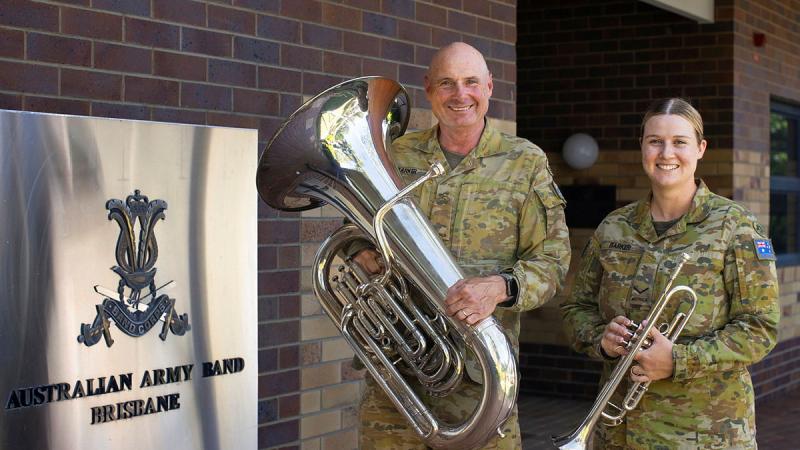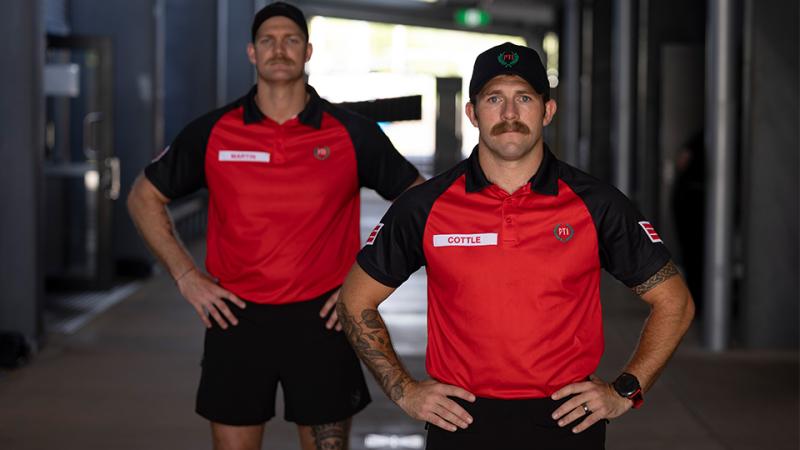17 October 2025
Despite life-changing experiences, two Navy members are preparing to take on one of their biggest challenges as they aim for gold on the world stage.
Lieutenant Commander Dave Miln and Able Seaman Taryn Dickens are preparing to represent Australia at the Milano Cortina 2026 Paralympic Winter Games.
Their journey to the snow has been anything but smooth.
In 2018, Able Seaman Dickens started having changes to her vision, with no known cause by medical professionals.
“My vision looked like shards in a kaleidoscope,” Able Seaman Dickens said.
With early assessments pointing to serious neurological conditions such as Multiple Sclerosis or Motor Neuron Disease, Able Seaman Dickens found herself overwhelmed and alone. She made the decision to check herself into a mental health unit.
“I just knew if I didn't do something that I was not going to live for much longer,” she said.
“I went to a psychiatrist that day, I walked in and said to her, 'I've got absolutely no interest in having a full session – I need to go to a hospital'.”
It took Able Seaman Dickens six months of tests to be diagnosed.
“Because of my [electronics technician] ET training, I was sitting there having the worst news possible said to me at the time, but I was so excited about the technology,” she said.
“They’d get slithers of gold and put them under your eyelids and around the back of your eyeballs, then plug the electrodes into a computer to read your retinas."
Now, the 43-year-old is aiming to be the first Australian vision-impaired athlete to qualify for the Winter Paralympics to compete in para biathlon and para cross-country skiing.
'Mental health is one of those things because it's not visual, it is probably the larger battle than trying to learn to walk all over again.'
For Lieutenant Commander Miln, life changed in 2021 on a family skiing holiday in the United States. After saving his children from a snow removal machine, he slipped and was caught between the blades.
After two days in an induced coma and more than two weeks in intensive care, both of his legs were amputated.
“I am just over two-and-a-half years post-accident and I would say I'm still learning to walk properly,” Lieutenant Commander Miln said.
The father of two daughters aged six and four said the greatest battle had been mental.
“Mental health is one of those things because it's not visual, it is probably the larger battle than trying to learn to walk all over again,” he said.
Sport has become a cornerstone of his recovery.
“It’s still hard and will continue to be hard for the rest of my life but sports plays a key piece in setting me up every day, and gives me the space to unwind and process things,” he said.
Both athletes are now focused on qualifying for the 2026 Winter Paralympics in Milan and Cortina d’Ampezzo, Italy – with hopes of bringing their assistance dogs, Suki and Gigi, along for the overseas journey.
“It's a long process so hopefully we qualify in Canada at the end of November,” Lieutenant Commander Miln said.
“The idea of putting on the green and gold and representing not only the nation, but Defence and my branch, is a great feeling.
“I’m proud to show my girls that no matter what life throws at you, you’re able to find a path that works for you.”
Able Seaman Dickens shared a similar sentiment.
“In a way, I’m glad it was me. I’ve had the chance to make a difference because I’m still here,” she said.
“What if it had been someone else who didn’t make it?”
Discussion of these issues may be distressing for some people. All serving and former ADF personnel and their families should know that if they need support, they can contact Open Arms for free, 24 hours a day, seven days a week, on 1800 011 046, or visit www.openarms.gov.au, or Lifeline on 13 11 14 or by visiting www.lifeline.org.au


